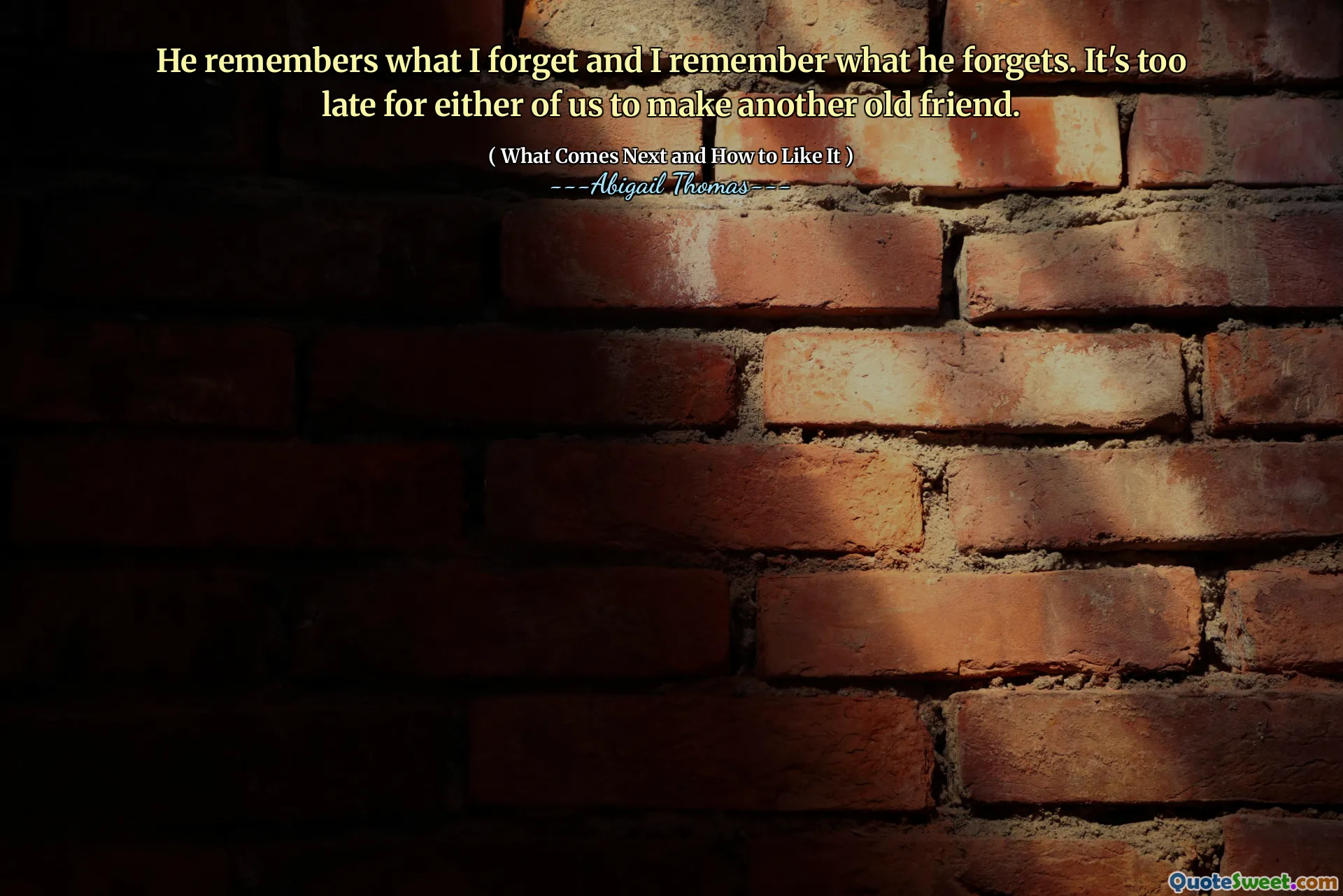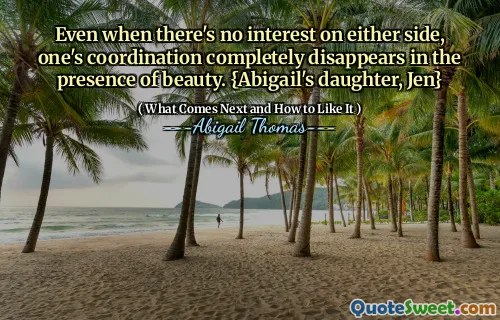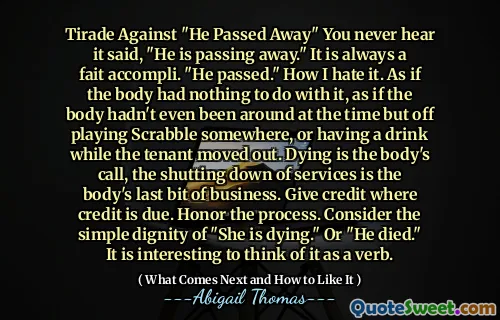
He remembers what I forget and I remember what he forgets. It's too late for either of us to make another old friend.
This quote from Abigail Thomas's What Comes Next and How to Like It captures a profound truth about the nature of friendship, memory, and time. It speaks to the unique, complementary relationship between old friends, where each person's imperfections or lapses in memory are balanced by the other's. The interplay of remembering and forgetting becomes not a flaw but a feature that deepens their connection. The phrase "It's too late for either of us to make another old friend" poignantly reflects on the irreplaceable position held by long-standing friendships. It reminds us that true, deep friendships are rare and often take years to cultivate, solidifying shared experiences and mutual understanding that can hardly be replicated once lost. The quote also evokes a bittersweet awareness of aging and the finite nature of time—how certain stages of life are closed chapters, especially regarding intimate social bonds that define us. Additionally, the contrast between memory and forgetfulness speaks to the human condition: relentlessness of time and the fragility of our minds, yet also the grace found in companionship. It invites us to cherish those who know us deeply, those who fill in the gaps of our memories and support us through what is forgotten or overlooked. Ultimately, it uplifts the quiet power found in lasting friendship and shared history, urging mindfulness about nurturing these precious relationships before they become too late to sustain.








